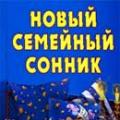Volga Svyatoslavich(also Volkh Vseslavyevich) - hero, Russian character. The main distinguishing features of this hero are the ability to shapeshift (the ability to turn into animals) and the ability to understand the language of birds and animals.
The epic figure of Volkh Vseslavyevich has many archaic features, so he is considered one of the oldest characters in Russian folklore.
Volga Svyatoslavich in epics
Volga is the son of the serpent and Princess Marfa Vseslavyevna, who conceived him miraculously, accidentally stepping on a snake. The shaking of the earth and the terrible fear of all living creatures at the moment when Volga saw the light point to him as the personification of some elemental force. Volga grows by leaps and bounds, and soon becomes a powerful hero, possessing not only the art of fighting enemies, but also reading books and turning into different animals.
This story preserves the most ancient totemic ideas about animals as the ancestors of man and the possibility of the birth of a great hunter and sorcerer directly from an animal father.
The central point of the epics about the Volga is his: Indian, the lands of Turets-Saltan, etc. He recruits a squad. To provide her with everything she needs, he turns into a wolf and a falcon, feeding her by hunting. The success of the campaign is due to the wisdom of Volga. He spoils the bowstrings of enemies with an ermine, bites the throats of horses with a wolf, and so on. So that the squad can overcome the impregnable walls, he turns them into ants, and within the walls of the city returns their human appearance. The winner marries the wife of the murdered king, and his warriors - the local girls left alive. He himself becomes king.
Surpassing Volga in “cunning and wisdom.” While collecting taxes from the cities of Gurchevets and Orekhovets, Volga met a plowman, who complained about the tax collectors of the city of Gurchevets, who charged an exorbitant price from a simple peasant, and punished them for greed with a whip. Seeing a mighty hero in Mikul, Volga invited him to join his squad to collect taxes. Having driven away, Mikula remembered that he had forgotten the plow in the ground. Twice Volga sent his warriors to pull out that plow, but the third time he and his entire squad did not overcome it. Mikula pulled out that plow with one hand. Arriving in the cities of Gurchevets and Orekhovets, they fought and collected taxes.
The red sun set behind the blue seas, behind high mountains, the bright moon came into the sky and brought behind it a cheerful round dance of clear, frequent stars... On this night a mighty hero, young Volga Svyatoslavich, was born in Kyiv.
At the hour of his birth, the earth trembled and the blue sea was agitated; the animals all ran away: deer and aurochs climbed into their holes, foxes and hares disappeared into the forest thickets, wolves and bears hid in the spruce forests, birds rose high into the sky, fish went into the depths of the sea: everyone sensed that a thunderstorm had come upon them: a mighty one was born hero.
Volga grows by leaps and bounds, speaks loudly, as if thunder is roaring; says the following to his young mother Marfa Vseslavyevna:
Empress Mother! Don’t swaddle me in expensive swaddling clothes, don’t put a silk belt on me - swaddle me in strong damask armor, put a golden helmet on my wild head, give me a heavy, heavy lead stick in my hands, weighing three hundred pounds!
The mighty Volga has grown up; His mother sent him to study at the age of seven; Science was useful to him: he learned all sorts of sciences and tricks, but this learning was not enough for him. Volga left home for the high mountains, into the dark forests, to the old wise men, and Volga learned various wisdom from them: Volga learned to turn himself into a clear falcon, a gray wolf, and a bay aurochs with golden horns.
At the age of twelve, Volga began to organize a squad for himself: for three years good fellows came to him, they came from noon, and from the north, and from the east, and from the west: there were seven thousand squads, all brave and strong fellows.
And Volga and his retinue went into an open field to gain fame and wealth for themselves.
My brave friend! - says Volga, - wind silk ropes, set snares on the damp ground, catch martens and foxes, wild animals and black sables.
Volga’s squad obeyed: they twisted ropes and set snares; The good fellows spent three days and three nights at work: but no animal was caught, as if on purpose, - the squad returned to Olga empty-handed.
Then Volga turned into a mighty lion, ran into the forests, stuffed every animal, fed his retinue like a king, and dressed him in black sable fur coats.
For the second time Volga sends good fellows:
My brave friend! wind silk ropes, set snares on tree branches: catch geese, swans, clear falcons, small birds!
Volga’s squad spent three days and three nights hunting: not a single bird got caught in the snare; came to Volga empty-handed.
Volga turned into a naui-bird, soared like an arrow into the heavens; I caught it, stuffed all sorts of birds, and brought it to my squad.
Volga says for the third time:
My brave friend! Take steel hatchets, build a strong oak vessel, throw silk nets into the sea, catch all kinds of fish: salmon and whitefish, pikes, small fish, and expensive sturgeons.

The knights spent three days and three nights at sea; We didn’t even catch one small fish! They don’t know how to show themselves to Volga. Volga sees that things are bad, he will have to go for the loot himself. Here Volga turned into a pike fish, sank to the deep seabed, and caught all sorts of fish; fed his squad with sugar dishes, all variable. They live for themselves, get along, don’t know any worries, don’t know.
One day rumors spread around Kyiv that the Indian king was going to war against the glorious capital city; threatens to take Kyiv, ruin it, and set God's churches on fire.
The good fellow Volga was smart and shrewd; He gathered his brave squad and went on a campaign to the Indian kingdom. One day passed, then another; Volga says to the squad:
Daring, good fellows, no less than seven thousand of you have gathered here; Is there a person among you who would turn into a bay auroch and would now run away to the Indian kingdom and find out what Tsar Saltyk Stavrulievich is up to?
The squad bows low to Volga, like grass bent to the ground by the wind, and says:
We don’t have another person like you except you, Volga Svyatoslavich.
Here Volga turned into a bay aurochs with golden horns and ran towards the Indian kingdom: he made the first jump and went a mile away, and with the second he completely disappeared from sight. Volga then turned into a clear falcon, flew to the Indian kingdom, sat on the slanting window of the royal white-stone chambers and heard Tsar Saltyk’s wife, Elena Azvyakovna, say to her husband:
You, glorious king, are going to war against holy Rus', but you do not know that a bright month has ascended to heaven, a mighty hero was born in Kyiv, strong enemy yours, Volga Svyatoslavich!
Saltyk Stavrulievich was angry with his wife because she was discouraging him from going to Rus' and praising someone else’s hero; grabbed the queen and hit her hard on the stone floor!
Volga flew away from the window; turned into an ermine beast, made his way into the basements, cellars, and high chambers of the Indian kingdom, bit the strings of tight bows, broke off the iron of hardened arrows and buried them in the ground so that Saltyk would have nothing to fight with. And again Volga turned into a clear falcon, soared high into the sky, flew into an open field, where he left his brave squad. Volga sees that the squad is sleeping and resting. He woke up the good fellows:
Get up, my brave friend, now is not the time to sleep and get enough sleep: it’s time to go to the Indian kingdom!

They approached the strong stone wall of the Indian capital city: the walls were high and strong, the iron gates were tightly locked, secured with copper hooks and bolts. The royal guards walk around the city day and night. On the gate there is a fine carved lattice of clever workmanship: only a tiny tingle can get through the patterns of the lattice: they are so thin and narrow.
Volga’s squad began to spin:
It’s in vain that we’ll hang our heads here: how to get through these tricky walls into the capital Indian city!
Volga hears the complaint of the brave good fellows and says:
This grief can be helped!
Volga gave goosebumps and gave his squad goosebumps, and they made their way beyond the city walls into the glorious Indian kingdom. Here they again turned into good fellows on horses, armed with daggers and spears. Volga gave them the following order:
You walk through the Indian kingdom, cut down old and small, do not leave a single Tatar villain alive, only leave seven thousand red girls alive!
And Volga himself went to the royal chambers to the Indian king. Tsar Saltyk Stavrulievich sits in his strong palace: the iron doors are locked with heavy damask locks. Volga pushed the doors with his foot, and the strong bolts flew off: there was no need to open them. Volga saw Tsar Saltyk and said:
They won't beat you, they won't execute you! - grabbed him by the white hands, hit him on the brick floor and put him down on the spot.
And Volga himself became the king-sovereign in the Indian kingdom, married the beautiful queen Elena Azvyakovna, and his squad married darling red girls.
Volga generously rewarded his good fellows: he gave them silver and gold; He gave each one a herd of horses of one hundred thousand.
The brave squad glorifies their daring prince, and throughout Rus' there is loud praise for the deeds and exploits of the glorious hero Volga Svyatoslavich and his daring, good fellows.
"Bogatyrs and Knights of the Russian Land" compiled by N.I. Nadezhdin
And the ability to understand the language of birds, fish and animals.
The identification of Volga and Volkh is not generally accepted in folklore. Perhaps these are different faces, which in the later period of the epic began to merge in the minds of the storytellers due to the similarity of names.
Encyclopedic YouTube
1 / 3
✪ Who is Volga Svyatoslavich? (MYTH Show)
✪ Volkh Vseslavevich
✪ "Volga and Mikula Selyaninovich"
Subtitles
Origin of the image
The epic figure of Volkh Vseslavyevich has many archaic features, so he is considered one of the oldest characters in Russian folklore. V. F. Miller believed that initially it was the image of a thunder cloud, as indicated by the shaking in nature described in the epic at the birth of Volga (thunder) and werewolf, that is, a constant and rapid change in the shape of a cloud under the influence of air movement.
The origin of the name of this hero was assumed to be from the word “ sorcerer"(by turning a common noun into a proper noun).
Based on epic information about Volga, modern researchers of the mythology of the ancient Slavs even reconstruct (rather controversially) the ancient Slavic god Volkh.
Supporters of the “historical school” in the study of epics believe that the prototype of the epic Volga was the prince Vseslav Polotsky.
Main stories
1. Birth of a hero
Volga is the son of a snake and Princess Marfa Vseslavyevna, who miraculously conceived him by accidentally stepping on a snake. Then he became very angry, but when he saw Marfa Vseslavyevna, he fell in love. The shaking of the earth and the terrible fear of all living creatures at the moment when Volga saw the light point to him as the personification of some elemental force. Volga grows by leaps and bounds, and soon becomes a powerful hero, possessing not only the art of fighting enemies, but also reading books and turning into different animals.
This story preserves the ancient ideas about animals as the ancestors of man and the possibility of the birth of a great hunter and sorcerer directly from an animal father
2. Campaign against the Indian kingdom
The central point of the epics about Volga is his trip to a distant kingdom: Indian, the lands of the Turkish Sultan Suleiman, etc. He recruits a squad. To provide her with everything she needs, he turns to the wolf and falcon, feeding her by hunting. The success of the campaign is due to the wisdom of Volga. He spoils the bowstrings of enemies with an ermine, bites the throats of horses with a wolf, and so on. So that the squad can overcome impregnable walls, he turns it into ants, and within the walls of the city returns human appearance. The winner marries the wife of the murdered king, and gives his soldiers the local girls left alive. He himself becomes king.
The epic about the campaign is preserved in 11 records.
3. Meeting with Mikula Selyaninovich
Meeting with a wonderful plowman who surpassed Volga in “cunning and wisdom.” During the collection of taxes from the cities of Gurchevets and Orekhovets Volga met the plowman Mikula Selyaninovich. Mikula complained about the tax collectors of the city of Gurchevets, charging a simple peasant at exorbitant prices, and told how he punished them for greed with a whip. Seeing a mighty hero in Mikul, Volga invited him to join his squad to collect taxes. Having driven away, Mikula remembered that he had forgotten the plow in the ground. Twice Volga sent his warriors to pull out that plow, but the third time he and his entire squad did not overcome it. Mikula pulled out that plow with one hand. Arriving in the cities of Gurchevets and Orekhovets, they fought and collected taxes.
Volga Svyatoslavich and Prince Oleg
At one time it was customary to identify Volga Svyatoslavich with the Prophetic Prince Oleg who reigned after Rurik. The identification is based on the similarity of names, the correspondence of Oleg’s chronicle epithet “Prophetic” (indicating his cunning and wisdom) with the qualities of Volga. In addition, Oleg's trip to Constantinople correlated with the Volga campaign in
Volga Svyatoslavich (also Volkh Vseslavyevich) is a hero, a character in Russian epics. Basic distinctive feature Volga is cunning, the ability to shapeshift and the ability to understand the language of birds and animals.
Ryabushkin, Andrey Petrovich. Volga Vseslavevich. 1895.
Volga (Volkh) is one of the most ancient characters in Russian folklore. There is a lot of archaic and magical things in it. Miller gives Volga a mythical meaning: in his opinion, it was originally an image of a thunder cloud, as indicated by the shaking in nature described in the epic at the birth of Volga (thunder) and werewolf, that is, a constant and rapid change in the shape of a cloud under the influence of air movement. They suspect a connection between his name and the word “magician,” suggesting that only later it turned from a common noun into a proper name. Based on the surviving data about Volga, researchers of the mythology of the ancient Slavs even reconstruct (rather controversially) the ancient Slavic god of hunting Volkh.
The epic about the campaign is preserved in 11 records.
The birth of a heroBoris Olshansky. Volkhv Vseslavovich
Volga is the son of a serpent and Princess Marfa Vseslavyevna, who miraculously conceived him by accidentally stepping on a serpent. The shaking of the earth and the terrible fear of all living creatures at the moment when Volga saw the light point to him as the personification of some elemental force. Volga grows by leaps and bounds, and soon becomes a powerful hero, possessing not only the art of fighting enemies, but also reading books and turning into different animals.
This story preserves the most ancient totemic ideas about animals as the ancestors of man and the possibility of the birth of a great hunter and sorcerer directly from an animal father.
Ivan Bilibin. "Volga with his squad."
March on the Indian Kingdom
Boris Olshansky. Campaign of the Volga
The central point of the epics about Volga is his trip to a distant kingdom: Indian, the lands of Turets-Saltan, etc. He recruits a squad. To provide her with everything she needs, he turns into a wolf and a falcon, feeding her by hunting. The success of the campaign is due to the wisdom of Volga. He spoils the bowstrings of enemies with an ermine, bites the throats of horses with a wolf, and so on.
Illustration for the epic "Volga": Volga turned into a pike fish. 1904
So that the squad can overcome the impregnable walls, he turns them into ants, and within the walls of the city returns their human appearance. The winner marries the wife of the murdered king, and his warriors - the local girls left alive. He himself becomes king.
Illustration for the epic "Volga": Tsar Saltyk Stavrulyevich and Tsarina Azvyakovna
Meeting with Mikula Selyaninovich
Ivan Bilibin.Bogatyr Volga and Mikula Selaninovits.
Meeting with a wonderful plowman who surpassed Volga in “cunning and wisdom.” While collecting taxes from the cities of Gurchevets and Orekhovets, Volga met the plowman Mikula Selyaninovich, who complained about the tax collectors of the city of Gurchevets, who were charging a simple peasant exorbitant prices, and punished them for their greed with a whip. Seeing a mighty hero in Mikul, Volga invited him to join his squad to collect taxes. Having driven away, Mikula remembered that he had forgotten the plow in the ground. Twice Volga sent his warriors to pull out that plow, but the third time he and his entire squad did not overcome it. Mikula pulled out that plow with one hand. Arriving in the cities of Gurchevets and Orekhovets, they fought and collected taxes.
Volga Svyatoslavich and Prince Oleg
At one time it was customary to identify Volga Svyatoslavich with the Prophetic Prince Oleg, who reigned after Rurik. The identification is based on the similarity of names, the correspondence of Oleg’s chronicle epithet “Prophetic” (indicating his cunning and wisdom) with the qualities of Volga. In addition, Oleg’s campaign against Constantinople was correlated with Volga’s campaign in India, and in Volga’s birth from a snake they found a similarity to Oleg’s death from a snake. Vladimir Propp rejects this attempt to find a historical prototype of the Volga as completely fantastic.
Ivan Bilibin.
According to Miller, over time, memories of the prophetic Oleg and Vseslav of Polotsk joined the initially purely mythical basis. According to Wollner, there were initially two separate songs about Volga and Volkh, which were later mixed with each other. Veselovsky brings one of the epics about Volga closer to “The Walking of Charles,” and thus he compares Volga himself with Charlemagne. Volga also bears the name Buslaevich, which, according to Miller, along with the news of his learning, was transferred to him from Vasily Buslaevich of Novgorod.
Konstantin Vasiliev.Volga
Some researchers identify Volga Svyatoslavich and the Drevlyan prince Oleg Svyatoslavich, brother of Vladimir and Yaropolk Svyatoslavovich.




